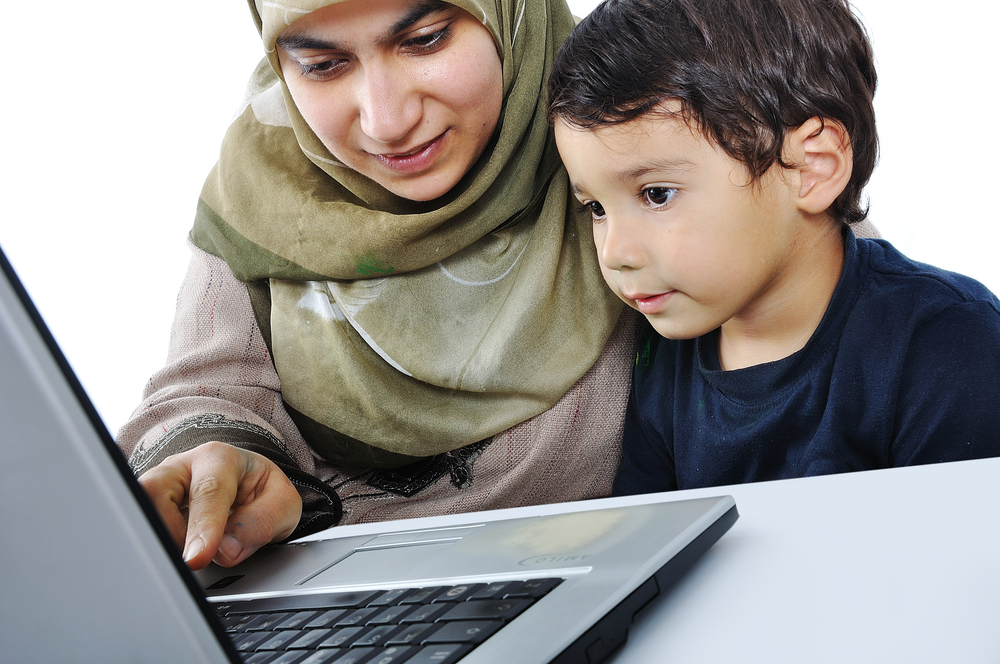Would you please do us a favor by showing the stages of the cultural growth of children in the light of the Islamic view?
Question: Would you please do us a favor by showing the stages of the cultural growth of children in the light of the Islamic view?
The answer: There are four stages:
First, the stage of suckling, which begins from birth and lasts until the child becomes a year and a half. In this period, the child receives his cultural growth through his attempts of success and failure. The mother must undertake her basic role in this important stage because the child is a deposit of Allah in her hand. If she does not help him to begin his life with the name of Allah, he will get to the Satan and the responsibility will be on her.
Second, the stage of childhood, which is composed of two periods: the first one begins after the year and a half of suckling up until the age of seven and the second period begins from the seventh year up until the twelfth.
The child learns in the first period – until the seventh year of his age – words, concepts, morals, and habits by watching and imitating. Therefore, those who are responsible for educating the child must pay close attention to this opportunity of teaching the child good morals and habits. These morals and habits can be noticed when the child imitates his father or mother in some of his plays such as the way of their speaking, gaits, and looking.
In the second period – until the twelfth year – the child begins analyzing meanings to comprehend bigger things. However, the family still has an effective role on his growth, but it is less than that of the first period because, in this age, the child is connected with school and classmates, and therefore, his presence among his family becomes less than before, and on the other hand, his mind opens for other things.
In this period, the child looks for a role model. It is very important for parents to either be good examples or find their child a good example to imitate. The socio-psychological studies have showed that most of the deviate youth and criminal men were, in this period, receiving their deviate and criminal lessons from their bad role models. Let parents beware that their children not take their role models, in this period from seven to twelve, from films or other programs that they watch.
Third, the stage of adolescence, which is from the twelfth until the eighteenth year. This is the most critical stage of growth that the Prophet (S) has described as “a kind of madness” and Imam Ali (a.s.) has said, “It is intoxication”.
The physical changes that take place in this stage are:
1. Quick growth; some changes take place in the outer shape of a man in this stage that cause a teenager to often look at himself in the mirror and ponder long over his new shape.
2. Change in the tone of a teenager’s voice to becoming rough and hoarse
3. Growth of the sexual lust; if a teenager is not instructed with the lawful and the unlawful concerning the matter of sex, he will become involved in sin.
The psychological changes are:
1. Excitement and nervousness
2. Secret thinking and pondering over what will happen
3. Feeling independent
The changes in the practical field:
1. Mutiny and objection
2. Taking occasional and sudden decisions without premeditation
3. Acting and then thinking
4. Taking famous persons as examples
5. Not accepting the supervision of others; a teenager does not tolerate the direct ordering or forbidding from his parents.
6. The desire of venturing and showing one’s personality
In this stage, the influence of parents on the youth weakens while the influence of the street, school, and the outside becomes strong. If parents spend the previous stages with their child in the correct way, they can easily, in this stage, connect their child with mosques, Islamic foundations, good scholars, and faithful friends to help them pass this stage without troubles; otherwise, the hands of the devils will snatch him to educate him with the culture of the people of Hell.
Fourth, the stage of youth, which begins after the eighteenth year when the storm of adolescence gradually calms down. Now, a young person begins his/her practical thinking of his/her scientific and professional future and thinks of choosing a spouse. This responsible state continues and becomes stronger after marriage and parenthood. Due to past and present cultural spheres, discernment and serious thinking emerge in one’s personality. The general social spheres and the cultural establishments surrounding man have a great effect on forming his personality.









